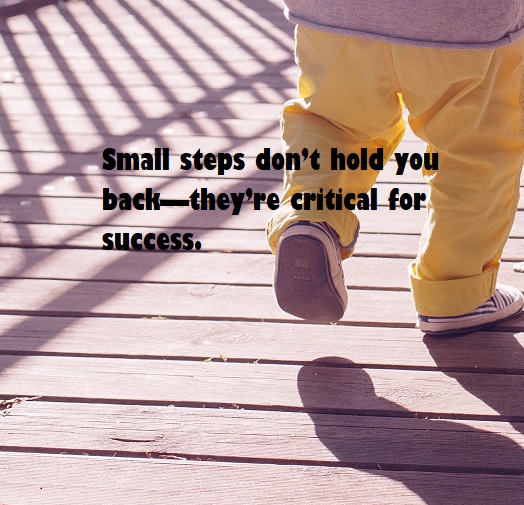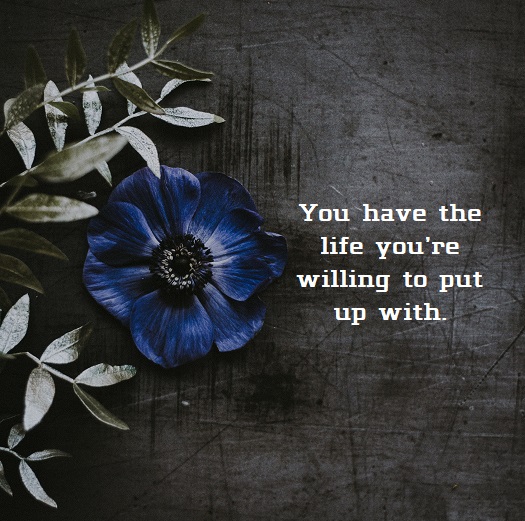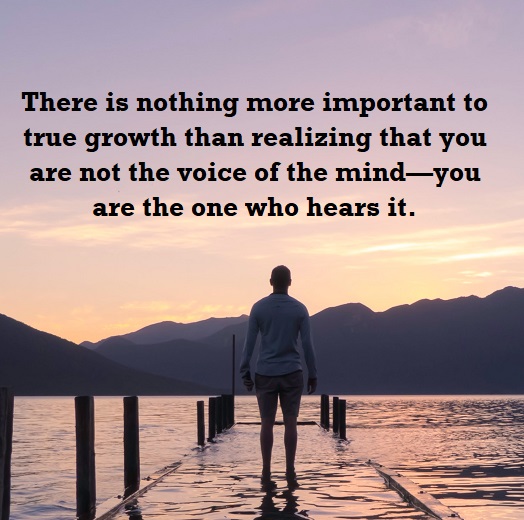39 Life-Changing Quotes from Mini Habits by Stephen Guise
Are you a self-development
addict like me? Do you want to improve yourself? Do you have bad habits or you
just want to have good habits? Do you waste a lot of time procrastinating? Do
you often set goals that you fail to achieve. If the answer to any of these
questions is yes Mini Habits can help
you tremendously. This book is very interesting, filled with advice that you
can EASILY follow and is also funny. It’s a short book that reads fairly quickly--- defiantly
worth investing your time.
Here are the quotes that I love:
''Big intentions are worthless
if they don't bring results. For example, I can say that I will exercise
for two hours every day, but if I never do it, the size of the intention
doesn't matter. In fact, intention without action harms self-confidence.''
― Stephen Guise, Mini Habits: Smaller Habits, Bigger Results
''Doing a little bit every
day has a greater impact than doing a lot on one day. How much greater?
Profoundly so, because a little bit every day is enough to grow into a lifelong
foundational habit, and those are a big deal.''
― Stephen Guise, Mini Habits: Smaller Habits, Bigger Results
― Stephen Guise, Mini Habits: Smaller Habits, Bigger Results
''If you fail using a particular
strategy more than a few times, you need to try another one. It doesn't matter
if it works for everyone else if it doesn't work for you!''
― Stephen Guise, Mini Habits: Smaller Habits, Bigger Results
''A Duke University study
concluded that about 45% of our behavior is from habit. They are even more
important than this 45% stake suggests, because habits are frequently repeated
behaviors (often daily), and this repetition adds up to big benefits or big
damage in the long run.''
― Stephen Guise, Mini Habits: Smaller Habits, Bigger Results
''Habits are not directly
accessible—you can't immediately create or remove one right now. They are
molded over time by repetition.''
― Stephen Guise, Mini Habits: Smaller Habits, Bigger Results
''The goal in creating habits
is to change your brain with repetition. But the brain will resist changes
unless they reward it handsomely. So really, the two keys to habit change as
far as the brain is concerned are repetition and reward. It will be more
willing to repeat something when there is a reward.''
― Stephen Guise, Mini Habits: Smaller Habits, Bigger Results
''Motivation
is unreliable because it’s based on how you feel, and we’ve known for centuries
that human feelings are fluid and unpredictable. Many things can alter your
feelings: an event, blood sugar levels, depression, chemical fluctuations,
hormones, health, external stimuli, energy levels, beliefs, and cat vomit. In
other words, anything can alter your feelings. Do you really want to
place your hopes on something so...volatile? The #1 rule of any foundation is
that it must be solid. Motivation is like building a house on liquid. (Don’t you
dare mention house boats—it ruins the analogy.)''
― Stephen Guise, Mini Habits: Smaller Habits, Bigger Results
― Stephen Guise, Mini Habits: Smaller Habits, Bigger Results
''It's
when we have a lot of energy, a healthy mindset, and no major temptations that
we succeed with motivation. But when the time comes to act and the scenario
appears far less favorable, we'll decide to ‘do it tomorrow.’ ''
― Stephen Guise, Mini Habits: Smaller Habits, Bigger Results
― Stephen Guise, Mini Habits: Smaller Habits, Bigger Results
''A
destructive habit to have is believing that you have to be motivated to act.
It’s not a problem when you would like to be motivated, but when you can't
do anything unless you’re motivated. This is the perfect way to enter a
laziness spiral. Being lazy makes you feel lazy, and if you always feel lazy
and follow this motivation rule, then you'll continue to be lazy. There's no
way out!This idea that motivation precedes.''
― Stephen Guise, Mini Habits: Smaller Habits, Bigger Results
''As a main strategy, motivation might be good enough
to get you by in life (maybe), but it’s a poor choice compared to willpower.
While willpower is the best strategy, most people don’t know how to use it and
drain their willpower reserves quickly.''
― Stephen Guise, Mini Habits: Smaller Habits, Bigger Results
''Motivation isn't reliable, so it can't be the strategy for
building habits.Willpower is reliable, but only if you don't run out of
it.There are five main causes of willpower depletion: effort, perceived difficulty,
negative affect, subjective fatigue, and blood glucose levels.''
― Stephen Guise, Mini Habits: Smaller Habits, Bigger Results
''Setting mini goals is the best way to drop the
perceived difficulty in any project.Once you start and are free to continue,
your perceived difficulty will be much lower due to the psychological impact of
having already started. Just like in physics, the greatest inertia comes before
the start of motion. Once you're in Motion, everything gets easier.''
― Stephen Guise, Mini Habits: Smaller Habits, Bigger Results
''With mini habits, willpower is preserved as
much as possible, every step you take feels like success, and going beyond your
goal feels even better than that. It’s a system that makes you feel like a
winner,because people who feel like winners act like
winners.''
― Stephen Guise, Mini Habits: Smaller Habits, Bigger Results
''People working normal, relatively low paying jobs
have becomes millionaires through smart money management while super athletes
making millions of dollars every year have gone bankrupt. If you don't plan
your action strategy out, you'll flip-flop between poor willpower and motivation
strategies, and end up frustrated.''
― Stephen Guise, Mini Habits: Smaller Habits, Bigger Results
''Mini habits are designed for minimum willpower
exertion and maximum momentum—the Perfect scenario.''
― Stephen Guise, Mini Habits: Smaller Habits, Bigger Results
''Mini habits are so small and willpower efficient,
that you can have multiple habits at once. Even busy and overwhelmed people can
succeed with multiple mini habits. Look at mini habits as your day's
foundation—these are things you MUST get done, but they only take a few minutes
total to do. After that, you can do anything you want.''
― Stephen Guise, Mini Habits: Smaller Habits, Bigger Results
''The perfect team in personal development is
small steps and willpower. As long as you have enough willpower for an action, you can take that
action. Small steps require little to no willpower. So it's like having
unlimited willpower. You can get yourself to do just about anything if you
guide yourself along in super small steps. Try it.''
― Stephen Guise, Mini Habits: Smaller Habits, Bigger Results
''Self-efficacy is your belief in your ability
to influence an outcome….Self-efficacy helps us achieve goals
and create habits…If you expect to fail, positive results are hard to come by.''
― Stephen Guise, Mini Habits: Smaller Habits, Bigger Results
''A habit is a strongest behavioral foundation a
human can have.''
''They'll say that you have to sweat blood to
get what you want in life. Well,isn't sweating blood a sign that a part of you
really doesn't like it? Wouldn’t you rather treat yourself well in the process of changing into a better person?''
― Stephen Guise, Mini Habits: Smaller Habits, Bigger Results
''You might feel motivated temporarily, but,
relying on feelings and motivation
doesn't work in the long run.''
― Stephen Guise, Mini Habits: Smaller Habits, Bigger Results
''Mini
Habits aims for 100% success, not 95%. If you fail at just one mini habit,
you won't have the feeling of total success, which is
important for maintaining high self-efficacy.''
― Stephen Guise, Mini Habits: Smaller Habits, Bigger Results
''A mistake people make when setting goals is
not taking into account that their motivation and energy levels are going to
fluctuate dramatically. They'll assume that their current state of mind and energy
can be preserved or reactivated when the time comes to act. What ensues is a
losing struggle against a brain that doesn't want to change (in that way).''
― Stephen Guise, Mini Habits: Smaller Habits, Bigger Results
''Life's most powerful tool is consistency,
because that's the only way for behaviors to become habits, and when a non-habit
becomes habit, it literally means that you've gone from fighting against your
brain to joining forces with it.''
― Stephen Guise, Mini Habits: Smaller Habits, Bigger Results
''What good is strong willpower if you only have
it for two hours a day? We want our willpower to last the whole day. Endurance
training at the gym involves lifting lighter weights with higher repetition,
which trains the muscle to endure. Mini habits are the same way. We're giving
ourselves low willpower tasks, but with high frequency.''
― Stephen Guise, Mini Habits: Smaller Habits, Bigger Results
''When you go to sleep feeling like a winner,
especially if you do it for many days in a row, it creates an internal desire
to improve even more. You've heard that success begets success, right?It's
true. Successful people work harder than depressed people because they're already
successful. Success ignites passion and action. This is what mini habits will
do for you too. You'll feel successful, which will make you want to succeed
more and more.''
― Stephen Guise, Mini Habits: Smaller Habits, Bigger Results
''The extremely fit people you see in the gym
don't have to force themselves to exercise anymore. They don't actually need willpower anymore, because
exercise has become their brain's first preference.''
― Stephen Guise, Mini Habits: Smaller Habits, Bigger Results
― Stephen Guise, Mini Habits: Smaller Habits, Bigger Results
''Mini habits are too small to fail, even without
a cue.''
― Stephen Guise, Mini Habits: Smaller Habits, Bigger Results
''The difficulty of a behavior is a primary
determinant of how long it takes to make it into a habit. This means that mini
habits can become habitual much faster than traditional habits can.''
― Stephen Guise, Mini Habits: Smaller Habits, Bigger Results
''I don't see mini habits as a fad you'll drop
in a few months, but as a lifetime pursuit. It works too well and is too
flexible to quit!''
― Stephen Guise, Mini Habits: Smaller Habits, Bigger Results











Comments
Post a Comment